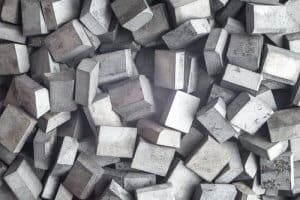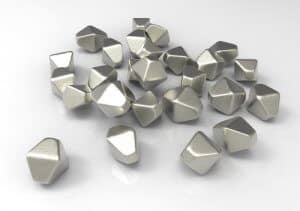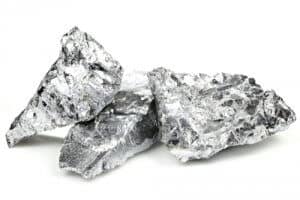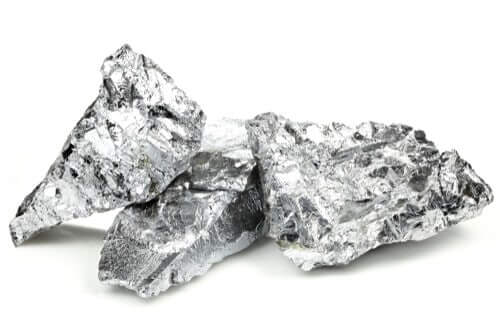Metal is one of the most unique and valuable resources on the planet. There is no other material compound that is so tough, dense, durable but also easy to manipulate which is why metal is used in the construction, manufacturing and automotive industries. Even more crucial is the material’s electrical conductivity properties upon which the delivery of our power generation and distribution is dependent on.
As a storage equipment company specialising in the production of metal pallets we rely on sourcing the best steel and aluminium so that our clients get years of use without warping or bending. Like many manufacturers, We use steel and aluminium because they are tough, malleable, relatively lightweight (aluminium) and adaptable through techniques like galvanization and anodization.
Beyond steel and aluminium are some exceptionally tough metals that have a range of different uses
1. Tungsten

This is without doubt, one of the densest and unquestionably tough metals known to mankind. It is often mixed with carbon to form an alloy called tungsten carbide which is used in high-level tools like drills. Owing to the high melting temperature and conductivity of tungsten carbide, it is also used to make the electrodes found in arc welds. An electrical arc produced by this process can range in temperature from 3000°C upwards. Since this process is used to melt other metals into each other, it becomes clear just how tough tungsten is.
2. Titanium

Used extensively in aerospace and aviation, titanium has an incredible strength to weight ratio and has an impressive melting point of around 1,700°C. Compare this to that of aluminium (660°C) or steel (1,370°C) and it is easy to see that titanium is incredibly versatile. In addition, titanium produces a natural ceramic coating around itself which makes for great protection against corrosion. Surprisingly, titanium is not rare and is about the 9th most abundant material on earth. You may think that these qualities make titanium ideal for use in lots of applications even for metal pallet production. Unfortunately, the high melting point and stubbornness of the metal would make production very complicated, expensive an ultimately unviable.
3. Chromium

Chromium is one of the key ingredients in stainless steel and as far as “hardness” is concerned it is arguably the hardest metal on earth with a 687-6500 MPa rating. Like titanium, it has a very high melting temperature and resists corrosion by producing a layer of oxide when exposed to oxygen. Yet, unlike titanium, chromium is not as freely abundant and is found in ores that are quite deep within the earth’s crust.
The Hardest Is Not Always The Best!
In the world of manufacturing, metal composition is a balancing act with so many different factors at play. Essentially all of the above metals are theoretically the hardest metals on earth but in their purest form, they are not exactly practical!
High melting points and densities make it difficult for some metals to have a direct practical use which is why they are added to fortify the strength of more easy to process metals. Metal pallets used in storage and transport need to have a degree of toughness, corrosion resistance and mobility which is why we use stainless steel (an alloy) that contains small doses of chromium.
Interested in what our metal pallets can do for you? Visit our website and enquire today!



Recent Comments